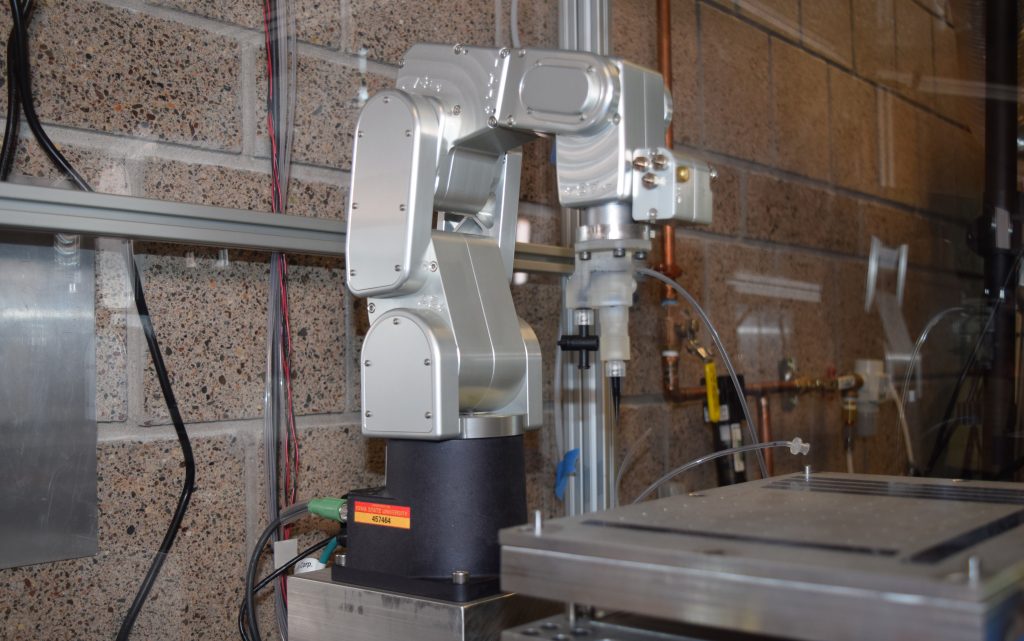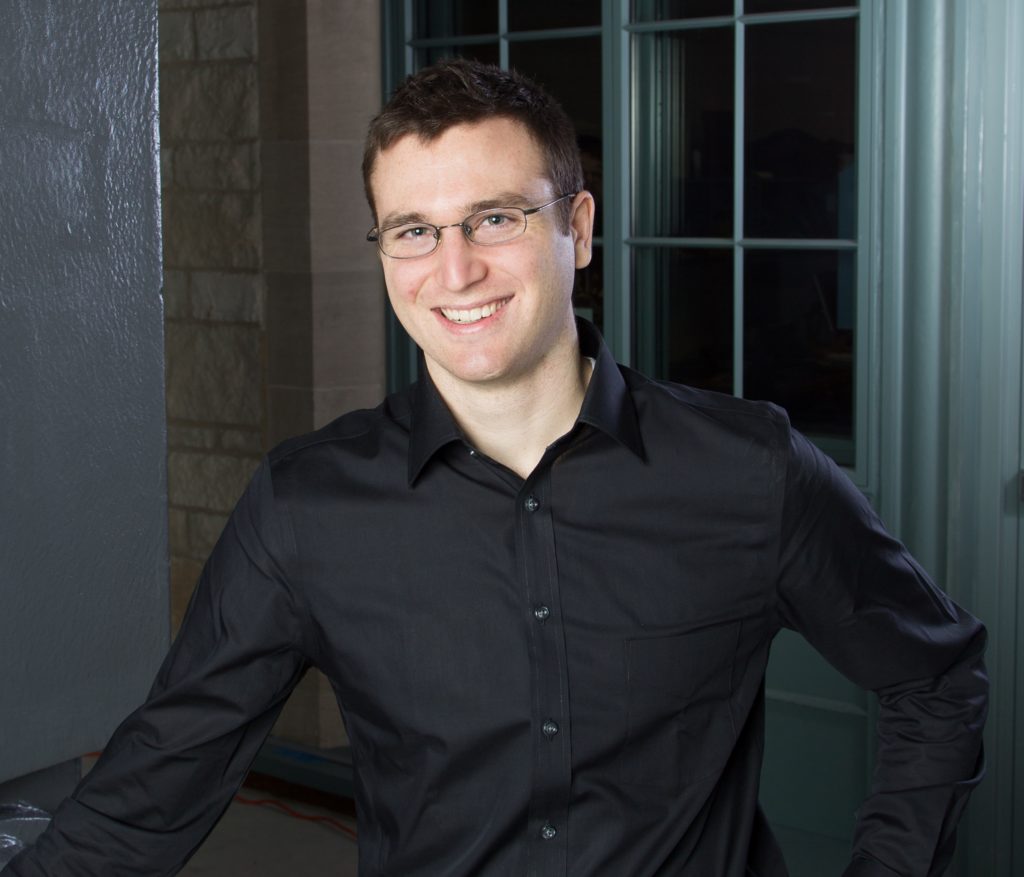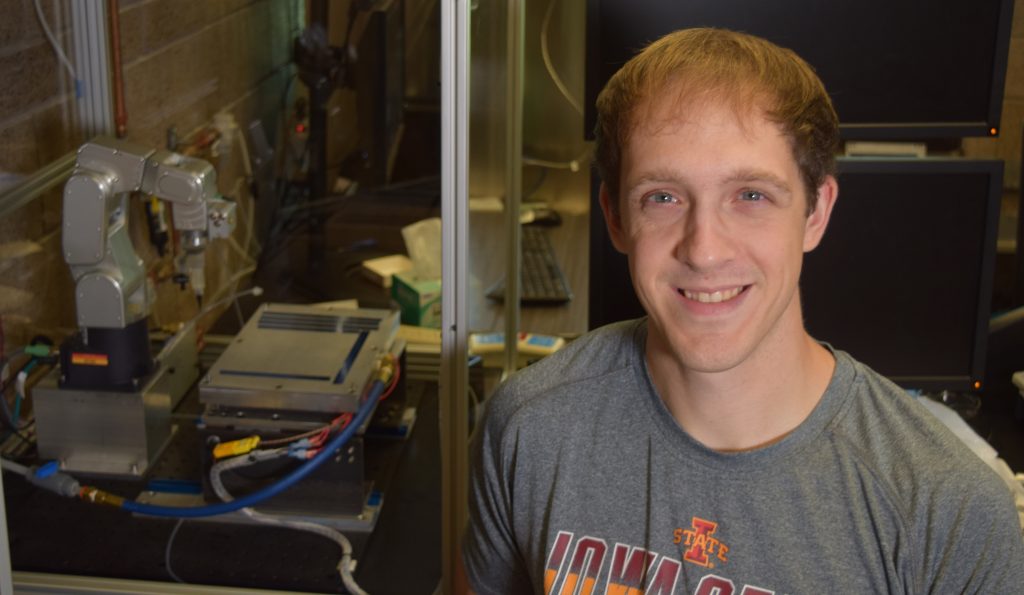Cyclone Engineers to advance aerosol jet printing research with NSF grant
Author: Nick Fetty
Author: Nick Fetty

A team of mechanical engineering (ME) researchers at Iowa State University hope to advance their research in the field of aerosol jet printing with the help of a new grant from the National Science Foundation (NSF).

Ethan Secor, assistant professor of ME, is the principal investigator (PI) on a more than $500,000 NSF grant titled “Shape-Conformal, High-Resolution Aerosol Jet Printing of Electronics (SHAPE).” Adarsh Krishnamurthy, associate professor of ME, is serving as a co-PI and ME graduate students are also contributing to the effort.
The research team will study physical and computational challenges associated with conformal printing on curved surfaces using a technology called aerosol jet printing. During the aerosol jet printing process, the researchers deposit a high resolution (~20 micron line width) stream of small (~1 micron) ink droplets, which can contain functional materials such as silver. By connecting this to a programmable motion system, they can print precise electronic wiring, devices and circuits.
“Aerosol jet printing is well-suited to printing on curved objects, because the printhead can be separated from the target surface by one to five millimeters,” said Secor. “This non-contact printing allows us to fabricate functional electronic devices on large, curved surfaces such as airplane wings, turbine blades, vehicles and more.”

The project combines manufacturing systems with computational controls, both of which are focus areas with the ME department. Secor’s specialty is in the realm of advanced manufacturing and for this project he and his graduate students will design hardware, develop materials and ink compositions, and conduct experimental studies to better understand the printing process.
“My lab has a custom built printhead mounted onto a precision articulated robot arm, and this project will use and improve that system. In addition to model ink studies to understand the process fundamentals, we will develop functional inks to demonstrate conformal printing of strain sensors on curved composite parts,” Secor said.
Secor gave special acknowledgement to Jeremy Rurup, a Ph.D. student in ME. Rurup was instrumental in developing the robot arm printing system, which will be a crucial tool for this research. Rurup holds his B.S. in ME from Iowa State and was active with PrISUm solar car as an undergraduate. This experience exposed him to the field of composites, and he spent a year and half working on composites in industry, prior to returning to Iowa State for graduate school.

Krishnamurthy and his graduate students bring their expertise in developing computational methods to the project. Specifically, they will develop the geometric modeling tools for conformal printing, which include developing custom CAD models and tool paths for directly printing on curved surfaces.
“For this research, we want to print directly on non-planar surfaces such as on top of curved airplane wings. These will require new algorithms for navigating the 3D print head along the curved surface, as well as CAD tools to accurately model the curved object to be 3D printed,” Krishnamurthy said, adding that the work will also be tied to the new cybermanufacturing lab, which is being established at Iowa State as part of the new cyber physical systems minor.
Work on this project will begin in October and funding will continue through September 2025.